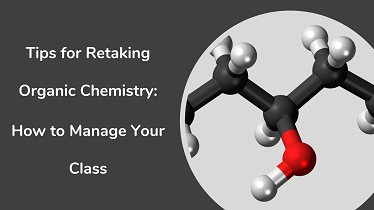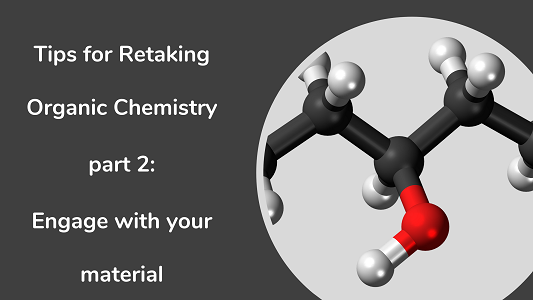When to Take a Chemistry Class?
Chemistry is a serious science and a chemistry course should not be taken lightly. It requires a considerable amount of effort and time commitment. Thus, your choice of the time when to take a chemistry class is, obviously, going to depend on several factors that you must take into consideration. Those factors are going to have a slightly different weight for different students.
Regular vs Off-Semester Schedule
Chemistry courses are usually taught in sequence of two semesters. And for the purposes of this article I’ll assume we are only talking about the semester-based educational institutions. However, many of these considerations will be applicable towards many trimester- and quarter-based colleges across the nation. Thus, since chemistry is taught in sequences, e.g. general chemistry I & II or organic chemistry I & II, these usually start in fall and continue in spring. However, in some schools, especially—larger institutions—the sequence may start in spring and continue next fall in a smaller class setting. Those are commonly referred as “off-semester” courses.
Regular-schedule courses usually have larger enrollment and are taught by regular instructors who teach the course all the time. Unless, of course, we are talking about a huge chemistry department and chemistry instructors rotate and teach multiple sections at the same time. In this case, you would also want to look out for a bad professor to make sure you have a good semester!
The benefits of having a regular-schedule class are:
- The class is taught by a professor that is likely teaching this class regularly
- The class is likely to have a Supplemental Instructor (SI) or some type of a help group associated with it making it a bit easier to find help
- The class enrollment is relatively large and thus it is easier to find study partners
- And finally, you’re unlikely to have an awkward summer break between parts one and two of the class
However, these can be, at the same time—drawbacks. Larger enrollment generally means less time professor can devote to each student; class is “routine” in many aspects for professors and department administration.
Indeed, if you are looking for a more personalized approach to the class and, perhaps, something a bit more off the beaten path, then taking an off-semester class might be a good choice. However, taking an off-semester chemistry class can be risky.
- Firstly, those classes are often taught by an adjunct or irregular instructor who might not be as familiar with the school curriculum as a whole.
- Secondly, precisely due to its nature of being an off-semester class, you’re less likely to enjoy the benefit of SI session or other external benefits that the regular-schedule class would have.
- Lastly, in my experience, off-semester classes often have, for whatever reason, have less strict requirements and are generally easier. Do you want an easier grade in lieu of better knowledge? Well, that’s your choice to make.
Also, remember—you’ll have a summer break in between, and trust my experience—you will forget half of what you’ve learned or even more if you don’t actively refresh your memory! But hey, let’s be honest with ourselves, who reviews their spring courses during the summer break? I surely didn’t when I was a student.
Summer Courses
You may consider summer as a good opportunity to catch up on studying and take your chemistry course over the summer break. Coming to think of it, that’s not the worst of the ideas: you have 2-3 months of free time, you might be doing some part time job, so why not add a class into the mix? WRONG! Summer sessions are short. You’ll have to cover the same material that is regularly taught over a 3-4-month period during the semester in as little as 5-6 weeks. This means you’ll have lectures almost every day and tests every week. Are you ready for this amount of stress?
Summer is only a good time to take chemistry when you have already taken the course before and now are retaking it to get a better grade. It is a horrible time to take chemistry for the first time. And even if you do get a decent grade in your summer chemistry course, you’re unlikely to learn much. Learning takes time, and cramming material into your head over a period of only a few weeks is by no means conductive for learning. If you’re planning to take a summer course as the first part of a two-semester sequence, you might want to reconsider remembering that you are building the foundation for the second semester.
Concluding Thoughts
I always recommend my students to take a regular-semester chemistry courses. In my experience, students are less stressed during the regular semester courses and enjoy the benefits of all the extra resources the regular-semester course offers. And if you do decide to take an off-semester or a summer course, make sure that you have a very candid conversation with yourself and weigh all the benefits and risks that you’re going to be facing.






